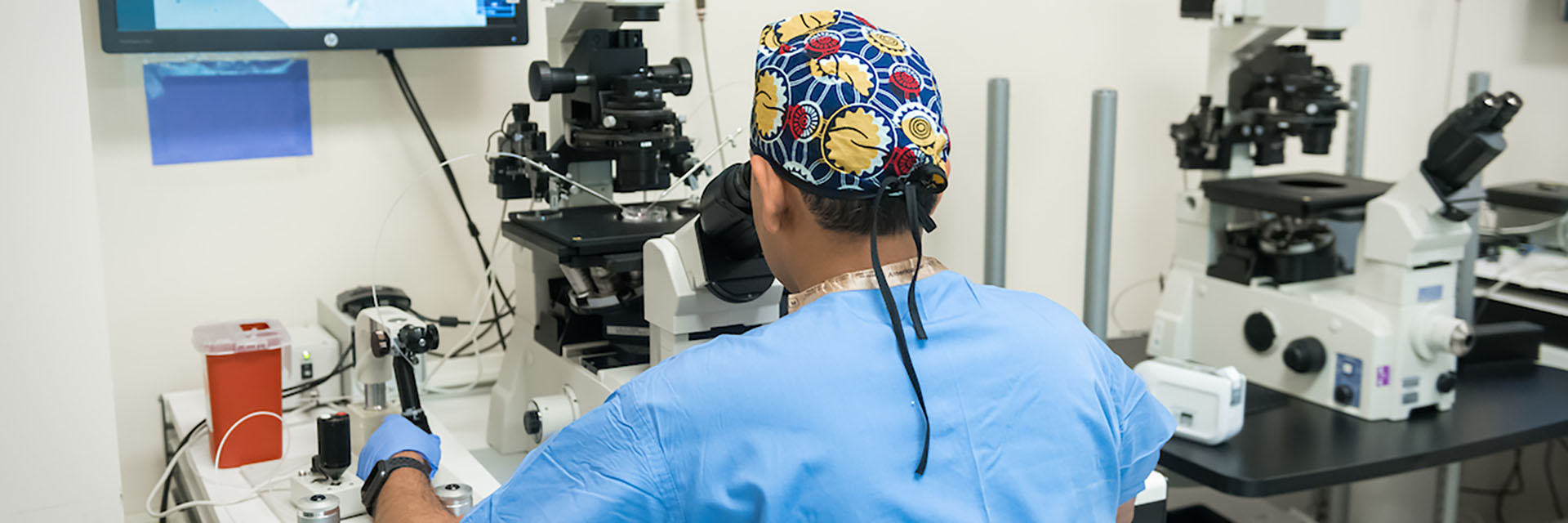When infertility is discussed, often it’s the battery of tests and treatments women face that is discussed the most. What many do not realize is that infertility can also affect men. In fact, according to the support group RESOLVE, one-third of infertility can be attributed to male infertility factors, with another third being attributed to female factors. Male infertility is often part of the cause with families failing to conceive.
When evaluating male infertility, the health of sperm is determined by three key factors:
- Quantity — How many sperm are contained in a single ejaculation
- Movement — How many of the sperm are wiggling and moving
- Structure — How the sperm are shaped
Common Causes of Male Infertility
According to the American Society for Reproductive Medicine, common causes of male infertility are:
- Azoospermia (no sperm cells are produced)
- Oligospermia (few sperm cells are produced)
- Sperm cells are not normally shaped
- Sperm cells die before they can reach the egg
- Genetic diseases, such as cystic fibrosis or a chromosomal abnormality.
What’s in a Semen Analysis
A semen analysis is done at a laboratory or a physician's office. According to the National Infertility Association, the analysis will likely be looking at several key characteristics of the semen, including the:
- Ability of sperm to swim
- Size and shape of the sperm
- Volume of sperm produced
- Ability of the semen to go from normal gel-like state to a liquid state.
Additionally, a physician may review:
- Past medical problems, such as mumps after puberty, hernia repairs, groin injuries and any history of undescended testicles
- Sexual history, including urinary tract infections, STDs, impotence or ejaculatory problems, and prostatitis
- Certain prescription medications as well as excessive smoking, drinking or drug use that can affect sperm quality
- Various hormone levels, such as FSH, testosterone and prolactin.
Physically, a physician may examine:
- The penis for abnormalities
- The scrotum and testes
- The hair growth pattern in the genital area.
Tips for Producing Healthy Sperm
What are some potential ways to produce the healthiest sperm?
Things to do:
- Maintain a healthy weight and diet
- Reduce your stress levels
- Exercise regularly
- Stay cool — wear loose fitting underwear, because increased scrotal temperature can limit sperm production
- Evaluate your medications — talk with your doctor because certain medications could limit sperm production.
Things to avoid:
- Smoking
- Alcohol consumption
- Lubricants
- Toxins, such as lead, pesticides and chemicals
- Excessive time in hot tubs
- Exposing the scrotum to hot objects, such as a laptop.
Potential Treatment Options
If the cause of a couple’s infertility is found to be a male factor or a combination, there is still hope.
Treatments can include medications, extracting sperm from the testicle to be injected into an egg or even washing sperm to be used during alternative insemination processes. Intrauterine inseminations and in vitro fertilization are also options. A fertility specialist can make recommendations based on what the sperm analysis reveals.


